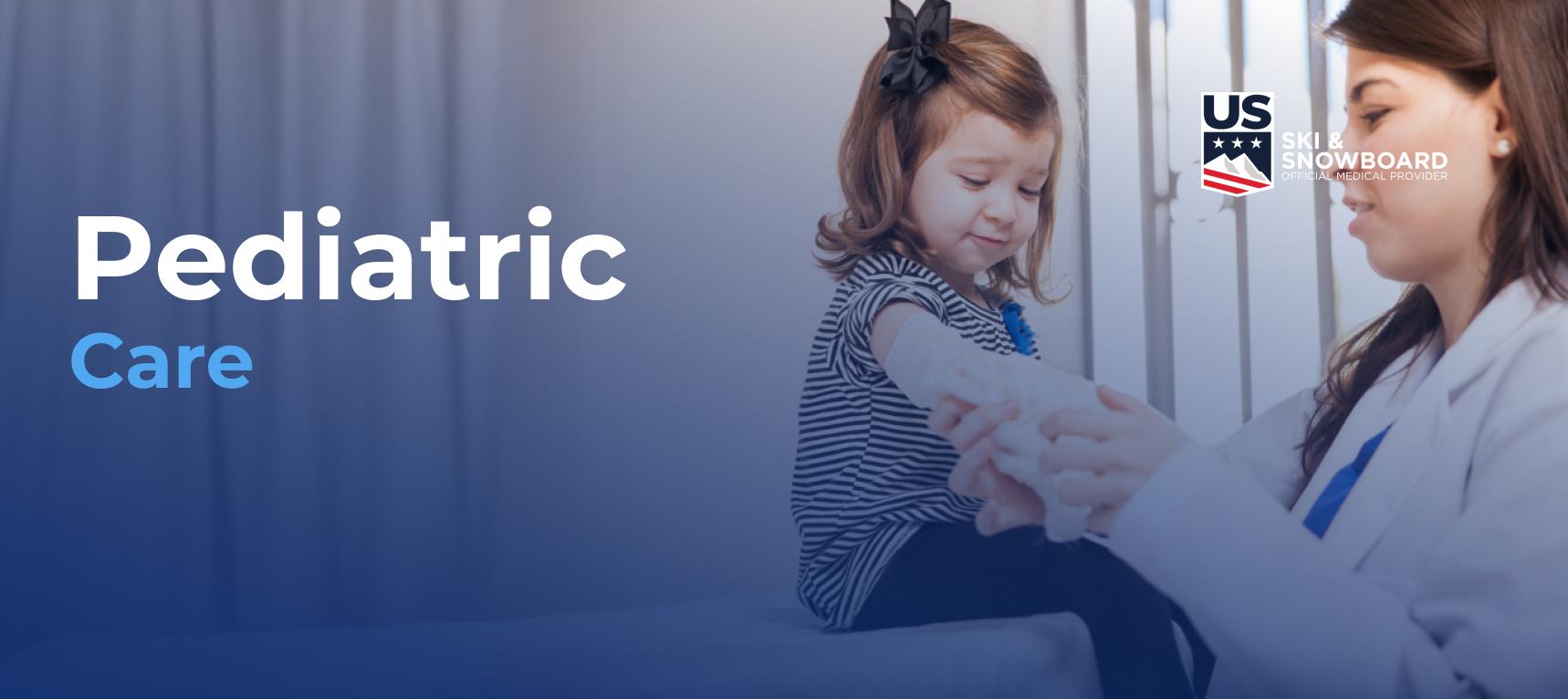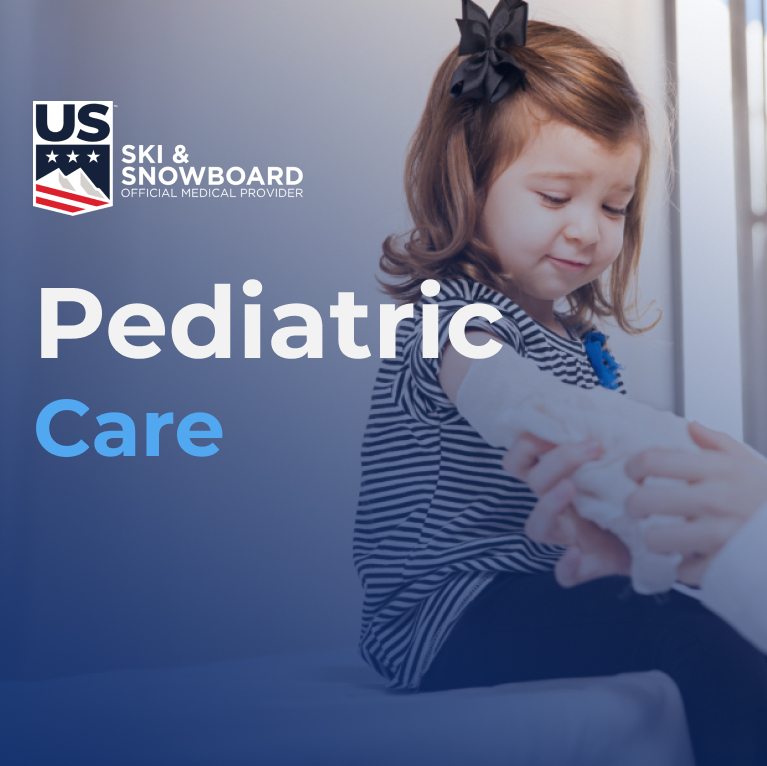
At The Orthopedic Partners, we believe that children should be able to fully embrace their childhood, free from the limitations of orthopedic conditions. Our specialized team of pediatric orthopedic experts is dedicated to providing exceptional care tailored to the unique needs of children and their families. From infancy through adolescence, we offer comprehensive care that prioritizes your child’s health, well-being, and recovery.
Caring for Our Youngest Patients
Our pediatric orthopedic team strives to create a compassionate and supportive environment to ease any anxieties or uncertainties you may have. Whether your child is dealing with scoliosis, spinal deformities, fractures, or developmental disorders, we customize our treatment plans to cater to their unique needs.
Pediatric Orthopedic Conditions We Treat
- Scoliosis: We treat all forms of scoliosis, including adolescent idiopathic scoliosis, early onset scoliosis, and neuromuscular scoliosis. Our team offers a full spectrum of treatment options, from observation and bracing to surgical correction, ensuring the best possible outcomes for your child.
- Spinal Deformities: Conditions such as Scheuermann’s Kyphosis, congenital scoliosis, and other complex spinal deformities are managed with advanced techniques to correct the deformity and support healthy growth and development.
- Congenital and Developmental Disorders: Conditions such as developmental dysplasia of the hip (DDH), clubfoot, and leg length discrepancy are managed with personalized treatment plans designed to correct deformities and improve function.
- Fractures and Trauma: Children are active, and injuries happen. We provide expert care for fractures and trauma, ensuring that bones heal properly and that children regain full use of the affected limb.
- Metabolic and Genetic Disorders: Conditions such as osteogenesis imperfecta and other metabolic disorders are managed with a multidisciplinary approach, addressing both orthopedic and systemic aspects of the condition.
Comprehensive Treatment Approach
At The Orthopedic Partners, we believe in a holistic approach to pediatric care. We offer a wide range of treatment options to address your child’s orthopedic needs:
- Non-surgical Management: Many pediatric orthopedic conditions can be treated without surgery. We provide options such as bracing, physical therapy, and casting to correct deformities and support healing.
- Surgical Intervention: When surgery is necessary, our specialists are skilled in performing minimally invasive and advanced surgical procedures to correct complex deformities and ensure optimal outcomes.
- Rehabilitation and Long-term Care: Recovery doesn’t end after treatment. We offer comprehensive rehabilitation services to support your child’s recovery and promote long-term health and mobility.
Pediatric Services Offered:
Pediatric Sports Injuries
Active children and adolescents often participate in sports that challenge their strength, agility, and endurance. While sports offer numerous benefits, they also come with the…Orthopedic Care for Pediatric Metabolic Disorders
Metabolic disorders can have a profound impact on a child’s musculoskeletal system, affecting bone strength, growth, and overall function. At The Orthopedic Partners, we specialize…Pediatric Fractures
When your child experiences a fracture, it can be a stressful and overwhelming experience for both the child and their family. At The Orthopedic Partners,…Developmental Disorders
At The Orthopedic Partners, we understand the unique challenges parents face when their child is diagnosed with a developmental orthopedic disorder. Our team of pediatric…Spinal Deformities
When it comes to your child's health, concerns about their spine can be particularly worrying. Spinal deformities in children can affect their posture, mobility, and…
Meet Our Pediatric Specialists
Our Cool Casts for Kids
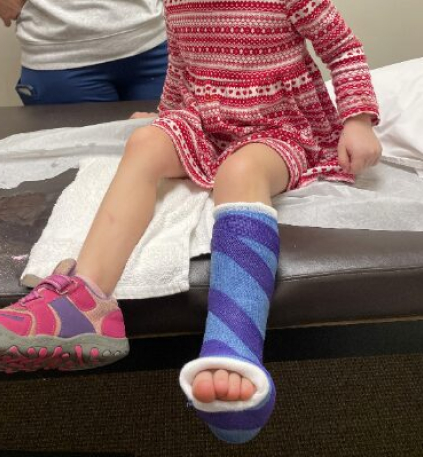
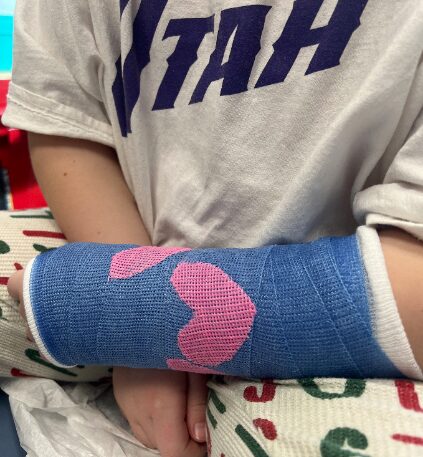
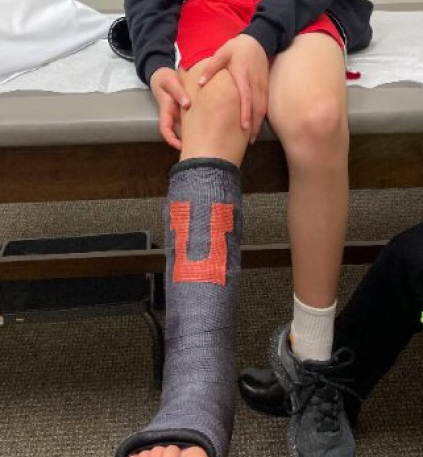
Why Choose The Orthopedic Partners for Your Child’s Care?
Expertise
Our team comprises nationally and internationally recognized experts in pediatric orthopedic care, research, and education, with over 60 years of combined experience.
Comprehensive Care
We adopt a multidisciplinary approach to healing, collaborating with pediatricians, therapists, and other healthcare professionals to ensure that your child receives well-rounded care.
Child-centric Approach
Our mission is to empower young lives through innovative treatment, holistic care, and a commitment to excellence in pediatric orthopedic health.
Frequently Asked Questions
My child loves swimming. How do I protect their cast?
We want our children to have the least impactful experience when they are wearing a cast, and we know not being able to move their limb is an inconvenience. Below, you will find our favorite cast covers for all ages.
What happens if my child’s cast gets wet?
If this happens, please contact our medical team ASAP. Please send an email to topedsortho@toportho.com or call 435-655-6606. Your child’s cast may need to be removed and replaced, especially if they had surgery and/or there are pins under the cast.
What if my child experiences itching in their cast?
- Do not stick or place anything in the cast. This can cause an infection or significant harm to the skin.
- Relieve itchy skin by tapping your cast with a spoon. It will cause your cast to vibrate, which may alleviate the itch.
- We also suggest cool airflow. The main instigator of itching under a cast is sweating, so running a fan or blow dryer on low will help alleviate the patient’s itchy sensation.
- Anything left in a cast will begin to fuse to your skin (in as little as 24 hours), which will likely cause an injury or infection.
How do I know if my child needs to see a pediatric orthopedic specialist?
- If your child is experiencing persistent pain or discomfort in their muscles, joints, or bones, it may be a sign that they need to see a pediatric orthopedic specialist. Other indications include difficulty with movement or coordination, limping, swelling, or deformities in the limbs or spine.
- If you notice any of these symptoms, it’s important to consult with a pediatric orthopedic specialist for a comprehensive evaluation and personalized treatment plan tailored to your child’s needs.
Which hospitals do our orthopedic surgeons provide surgical care at?
Primary Children’s Hospital in Salt Lake City and Park City Hospital in Park City. Please ask your surgeon which place is ideal for your child and their orthopedic diagnosis.
When do I remove the Steri-Strips?
We typically suggest removing these at ~ 2 weeks following surgery. If they haven’t fallen off on their own by this time, please lift them off and remove them completely. In many circumstances, you will also find a clear suture on each end of the incision. This also needs to be removed by lifting it up with your fingers and cutting it at the base. You do not need to pull on the stitch. Just lift up and cut. The stitches under the skin will dissolve. If the stitch sticking out is blue or black, leave it alone; your doctor will take this out at your post-op visit.
How can I help my child’s pain?
- Non-Pharmacological Approaches: Provide comfort measures such as applying ice packs or heating pads (depending on the type of injury), gentle massages, or distraction techniques like reading books or watching movies. Encourage your child to find a comfortable position that relieves pain. Proper positioning can often help reduce discomfort.
- Over-counter Medications: Provide comfort measures such as applying ice packs or heating pads (depending on the type of injury), gentle massages, or distraction techniques like reading books or watching movies. Encourage your child to find a comfortable position that relieves pain. Proper positioning can often help reduce discomfort.
- Ibuprofen (e.g., Advil): Ibuprofen is a nonsteroidal anti-inflammatory drug (NSAID) commonly used to relieve pain and reduce inflammation. It’s suitable for children over six months of age. The recommended dosage for children depends on their weight and age.
- Acetaminophen (e.g., Tylenol): Acetaminophen is another over-the-counter pain reliever suitable for children. Like ibuprofen, the dosage depends on the child’s weight and age.
- Important Considerations:
- Always use a measuring device (such as a syringe or dosing cup) to ensure accurate dosing.
- Do not give ibuprofen to children with certain medical conditions or allergies without consulting a healthcare professional.
- If your child’s pain persists or worsens despite medication, seek medical attention promptly.
- If you have any questions or concerns about managing your child’s pain or administering medication, don’t hesitate to consult with your child’s pediatrician or a healthcare professional for personalized guidance and recommendations.
